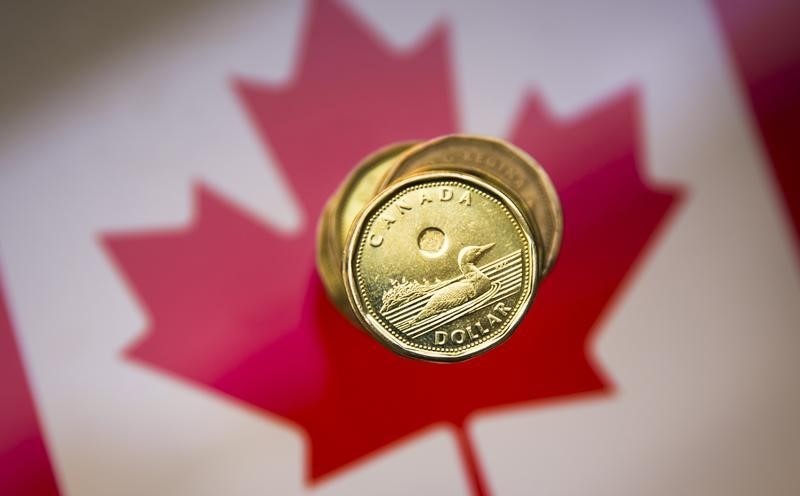* Canadian dollar at C$1.2940, or 77.28 U.S. cents
* Loonie touches its strongest since March 12 at C$1.2830
* Oil prices fall 1.3 percent
* Bond prices higher across a flatter yield curve
By Fergal Smith
TORONTO, March 22 (Reuters) - The Canadian dollar weakened against its U.S. counterpart on Thursday, pulling back from an earlier 10-day high, as the potential for a global trade war offset optimism about a NAFTA trade deal.
U.S. stocks slumped as President Donald Trump's move to impose tariffs on up to $60 billion of Chinese imports drove fears about the impact on the global economy, fueling the biggest percentage declines in Wall Street's three major indexes since they entered correction territory six weeks ago. is improving but the odds of a trade war with China are rising," said Adam Button, currency analyst at ForexLive in Montreal. "Right now we know the U.S. is going at China, we just don't know how hard and we're not quite sure what Canada's role in that is."
Canada's commodity-linked economy could be hurt if global trade slowed.
On Wednesday, the loonie posted its biggest gain against the U.S. dollar in nearly four months, buoyed by optimism about a deal to modernize the North American Free Trade Agreement between Canada, Mexico and the United States.
At 5 p.m. ET (2100 GMT), the Canadian dollar CAD=D4 was trading 0.3 percent lower at C$1.2940 to the greenback, or 77.28 U.S. cents.
The currency's weakest level of the session was C$1.2949, while it touched its strongest since March 12 at C$1.2830.
The price of oil, one of Canada's major exports, fell as investors booked profits after this week's rally, but losses were limited by the ongoing efforts of some major producers to curb supplies. crude oil futures CLc1 settled 1.3 percent lower at $64.30 a barrel.
Bank of Canada Senior Deputy Governor Carolyn Wilkins said that tighter mortgage rules appear to be having the "desired effect" of improving debt quality, but the central bank is watching to see what impact its three recent interest rate hikes will have on households. government bond prices were higher across a flatter yield curve in sympathy with U.S. Treasuries. The two-year CA2YT=RR rose 8.5 Canadian cents to yield 1.823 percent and the 10-year CA10YT=RR climbed 66 Canadian cents to yield 2.176 percent.
On Wednesday, the 2-year yield touched its highest intraday in nearly seven years at 1.909 percent.
Domestic inflation data for February is due on Friday.
